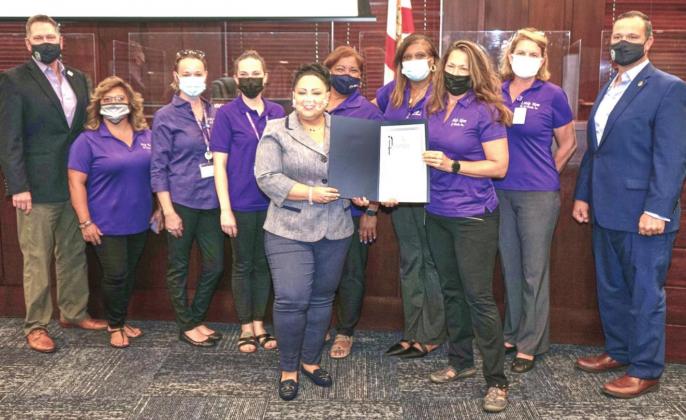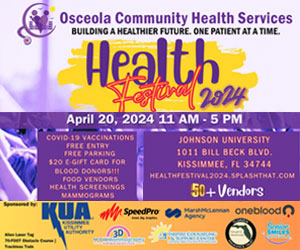In October 2019, St. Cloud mother Nicole Montalvo became a victim of murder in a traumatic and devastating act of domestic violence from her abusers, her estranged husband and his father — a fight that went on for multiple years.
Her sister, Christina Montalvo, has since become a Primary Prevention Specialist for Help Now of Osceola, allowing her to channel her passion for domestic violence prevention to make sure others do not go through the same hurt and pain.
“For many years my sister had struggled to fight the cycle of abuse, just like many others have done before her. The courage and strength my sister had within herself in overcoming her battle was inspiring in the sense of me wanting that same strength and courage she showed over the years,” Christina said. “It takes time, more physical and mental energy than usual, and will power to get to the point of that kind of independence. We stood next to her as her part of her support system during her struggle of being in a toxic and abusive relationship, to then be standing with her while she became an independent woman living on her own without fear and with ambition for a better life. Unfortunately, her abusers had other plans.
“Their need of power and control over her became detrimental and now, it is the secondary trauma that my family and I have to overcome. Resilience is a way of life for us now, but we have my sister’s eternal strength to guide us through.”
Since October is National Domestic Violence Awareness Month, it is the right time to recognize the violence that creeps into adult relationships manifests itself at younger ages. According to Help Now facts and figures, over three million referrals to child protective authorities are made annually. Approximately 45 million children will be exposed to violence during childhood, and 90 percent are direct eyewitnesses of violence.
Among the long-term effects of witnessing domestic violence for children and teens include anxiety, depression, heart issues, restless leg syndrome, IBS, chronic headaches, attention deficit hyperactivity disorder (ADHD), Conduct disorder, depression, bipolar disorder, panic disorder, sleep disorders, suicide attempts and Posttraumatic stress disorder (PTSD).
Children who witness domestic violence are at an increased risk for aggressive behavior, anxiety, impaired development, difficulty interacting with peers, academic problems, and they have a higher incidence of substance abuse, and can also develop psychosocial outcomes like insomnia, headaches, high blood pressure, chronic pain, gastrointestinal and gynecologic disorders, depression and panic attacks.
Later on, they are at increased risk of dating violence and have a more difficult time with partnerships and parenting.
So what can be done to help? Montalvo said to focus on teens and children — listen to what they need from the adults in their lives.
“Remain judgement free. Support them and their thoughts. Help guide them through making the best decisions for them,” she said. “Educate them on red flags and tactics of abuse. Inform them of what respect truly means and how to refrain from bullying. Don’t send mix messages like, ‘If they tease you, that means they like you.’ It sets a false narrative of how we should be respected and treated in relationships.
The answer to “Why does this happen?” circles back to, Montalvo said, lack of education in domestic violence prevention.
“I remember when I was in middle school and high school, domestic violence was only briefly taught in one chapter or so, and ultimately that’s not enough,” she said. “Domestic violence affects more individuals than we know, and our children and teens who witness it, can start affecting them mentally at a very young age. Prevention education in the schools will help students to not just recognize the signs of abuse, but to understand them, to ident ify the red flags and tactics when they are happening, and to know how to handle the situation as it arises.”
Help Now of Osceola offers a variety of programs geared towards educating young teens and adults about domestic violence and how to create and maintain healthy relationships. Its school programs offer opportunities for students to learn and engage with each other in a confidential capacity while creating leadership skills, generate life skills to help with social change to end violence, as well as helping build safer and trusting school environments as a community. The educational programs can also help guide teens and adults to escape abusive relationships by providing tools and resources to help victims understand and notice red flags, tactics, and other forms of abuse that aren’t easily identified.
“Our goal in prevention is making sure we are raising awareness of domestic violence to help make a difference and to stop the cycle of violence and abuse,” Montalvo said.




